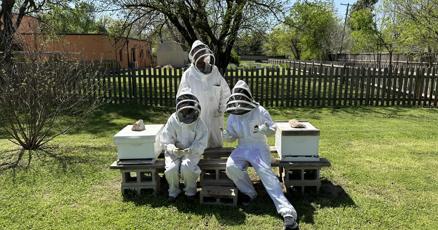Buzzing with Purpose: OU Green Week Unveils Critical Bee Conservation Strategies

Nestled in the vibrant corner of Rose Rock School's expansive grounds, a hidden ecosystem thrives with remarkable energy. Tucked away at the back right of the school's Main Street location, two pristine white boxes hum with an extraordinary vitality, perfectly framed by a lush landscape of emerald clovers, verdant grass, delicate budding trees, and a colorful array of blooming flowers. These unassuming containers pulse with life, creating a miniature world of natural wonder just beyond the school's bustling boundaries.
